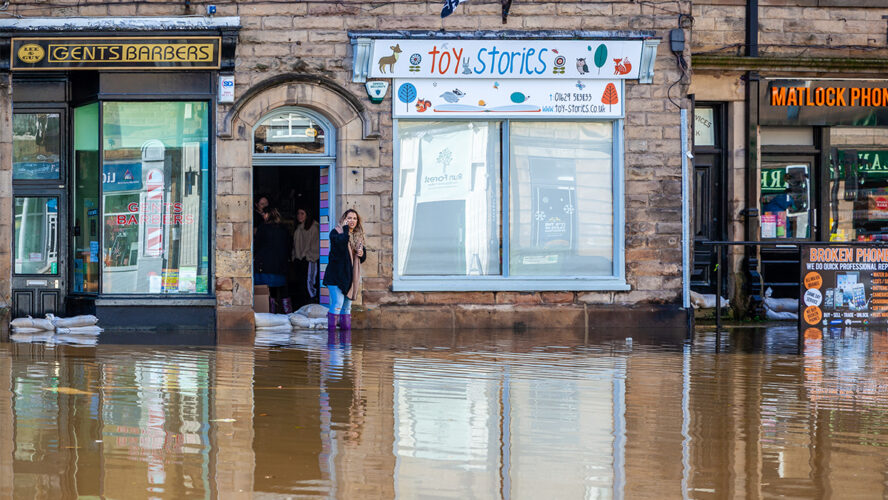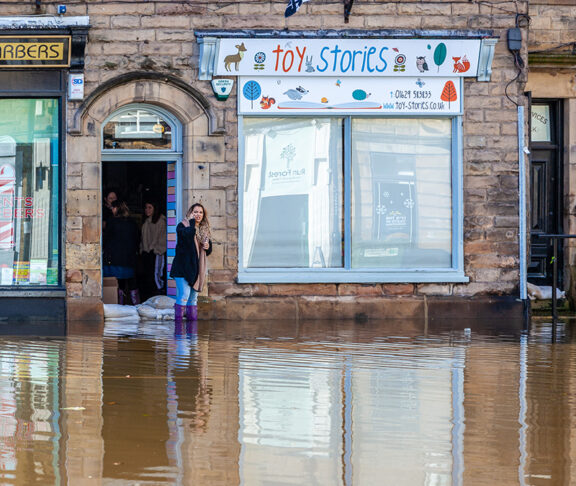When small businesses are prepared for disasters, they are better equipped to recover faster, support their neighbors, and provide community stability.

Rob Glenn
Vice President of Global Resilience, U.S. Chamber of Commerce Foundation
Across the country, when hurricanes, wildfires, or floods disrupt daily life, small businesses often provide the first sense of normalcy. They open their doors, check on neighbors, and keep critical services running. When prepared, small businesses not only survive the storm — they help others weather it, too.
In Tampa, Fla., Kenneth Kitchen, owner of Gold Standard Commercial Air Conditioning and Heating, followed a disaster preparedness checklist as Hurricane Helene approached. By securing equipment, safeguarding records, and coordinating with staff and clients, he avoided costly replacements and gained the confidence to navigate the crisis. “We’re now better positioned to serve our clients and build resilience for the future,” he said.
Action plans protect small businesses
Small businesses make up 99.9% of all U.S. businesses and are the heart of communities, providing jobs, services, and stability when times get tough. Yet, many remain underprepared.
A U.S. Chamber of Commerce Foundation survey found that while 94% of small businesses believe they’re ready for a disaster, only 26% have an actual plan. That disconnect can slow recovery — not just for businesses, but for their employees and entire communities. As disasters grow more frequent and severe, the economic resilience of communities can be increasingly at risk.
But preparedness pays off. Research from the U.S. Chamber Foundation, U.S. Chamber of Commerce, and Allstate found that every dollar invested in preparedness yields a $13 return in economic costs, damages, and cleanup. Programs like the Small Business Readiness for Resiliency (R4R) initiative show how the right resources—even a simple checklist—can make a real difference. Thousands of small businesses nationwide have used the checklist to strengthen operations and support their communities when it matters most.
Communities that work together stay strong
Prepared small businesses are the most likely to keep their doors open, the first to lend support, and often lead their community’s recovery. When local shops, restaurants, and service providers are prepared, the economic ripple effect is immediate and profound. Jobs are preserved, household incomes remain stable, and communities stay strong.
In Ashe County, North Carolina, owners of Jimmy & Jean’s Family Entertainment and Arcade turned their location into the county’s largest supply distribution center to help deliver much-needed items to communities impacted by Hurricane Helene.
Preparedness also alleviates the burden on public services. When fewer businesses rely on emergency aid, vital resources are freed up for those in need. Disasters aren’t going away, but with the right preparation, small businesses can stay ready to lead, support, and sustain the places they call home.
Here are three steps any business can take today:
- Create a disaster plan. Start with an emergency checklist and assess what it will take to operate your business on your worst day.
- Talk to your network. Open communication channels to reduce confusion during moments of crisis, letting employees, customers, and partners understand your actions and their roles.
- Know and reduce your risk. Utilize free tools and support through the U.S. Chamber Foundation, the Small Business Administration, and other organizations to inform disaster risk awareness and mitigation.
Because when small businesses are prepared, their communities are stronger for it.


